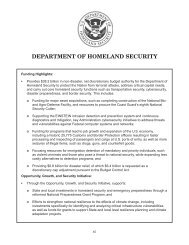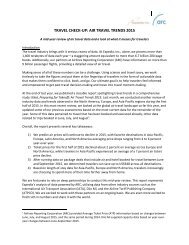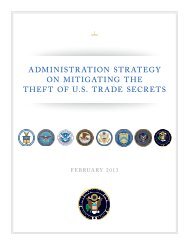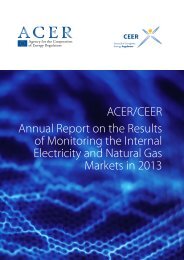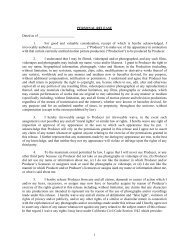A-HRC-13-42
Create successful ePaper yourself
Turn your PDF publications into a flip-book with our unique Google optimized e-Paper software.
A/<strong>HRC</strong>/<strong>13</strong>/<strong>42</strong><br />
page 10<br />
I. INTRODUCTION<br />
1. The present joint study on global practices in relation to secret detention in the context of<br />
countering terrorism was prepared by the Special Rapporteur on the promotion and protection of<br />
human rights and fundamental freedoms while countering terrorism, the Special Rapporteur on<br />
torture and other cruel, inhuman or degrading treatment or punishment, the Working Group on<br />
Arbitrary Detention (represented by its Vice Chair), and the Working Group on Enforced and<br />
Involuntary Disappearances (represented by its Chair).<br />
2. The study was prepared within the mandates of the above-mentioned special procedures. In<br />
particular, the Human Rights Council, in its resolution 6/28, requested the Special Rapporteur on<br />
the promotion and protection of human rights and fundamental freedoms while countering<br />
terrorism to make concrete recommendations on the promotion and protection of human rights<br />
and fundamental freedoms while countering terrorism, and to work in close coordination with<br />
other relevant bodies and mechanisms of the United Nations, in particular with other special<br />
procedures of the Council, in order to strengthen the work for the promotion and protection of<br />
human rights and fundamental freedoms while avoiding unnecessary duplication of efforts.<br />
3. In its resolution 8/8, the Council requested the Special Rapporteur on torture and other<br />
cruel, inhuman or degrading treatment or punishment to study, in a comprehensive manner,<br />
trends, developments and challenges in relation to combating and preventing torture and other<br />
cruel, inhuman or degrading treatment or punishment, and to make recommendations and<br />
observations concerning appropriate measures to prevent and eradicate such practices.<br />
4. In its resolution 6/4, the Council requested the Working Group on Arbitrary Detention to<br />
seek and receive information from Governments and intergovernmental and non-governmental<br />
organizations, and receive information from the individuals concerned, their families or their<br />
representatives relevant to its mandate, and to formulate deliberations on issues of a general<br />
nature in order to assist States to prevent and guard against the practice of arbitrary deprivation<br />
of liberty. Like other mandates, it was asked to work in coordination with other mechanisms of<br />
the Council.<br />
5. In its resolution 7/12, the Council requested the Working Group on Enforced or<br />
Involuntary Disappearances to consider the question of impunity in the light of the relevant<br />
provisions of the Declaration on the Protection of All Persons from Enforced Disappearances,<br />
having in mind the set of principles for the protection and promotion of human rights through<br />
action to combat impunity (E/CN.4/Sub.2/1997/20/Rev.1, annex II, and<br />
E/CN.4/2005/102/Add.1), and to provide appropriate assistance in the implementation by States<br />
of the Declaration and existing international rules.<br />
6. In the above context, the four mandates endeavoured to address global practices in relation<br />
to secret detention in counter-terrorism. In the joint study, they describe the international legal<br />
framework applicable to secret detention and provide a historical overview of the use of secret<br />
detention. The study addresses the use of secret detention in the context of the “global war on<br />
terror” in the post-11 September 2001 period. To the extent possible, in order to demonstrate that<br />
the practice of secret detention is regrettably not an uncommon one, it also highlights a number<br />
of cases where it has been utilized in and by States from various geographical regions. Owing to<br />
its global nature, the present study cannot be exhaustive but rather aims to highlight and illustrate











